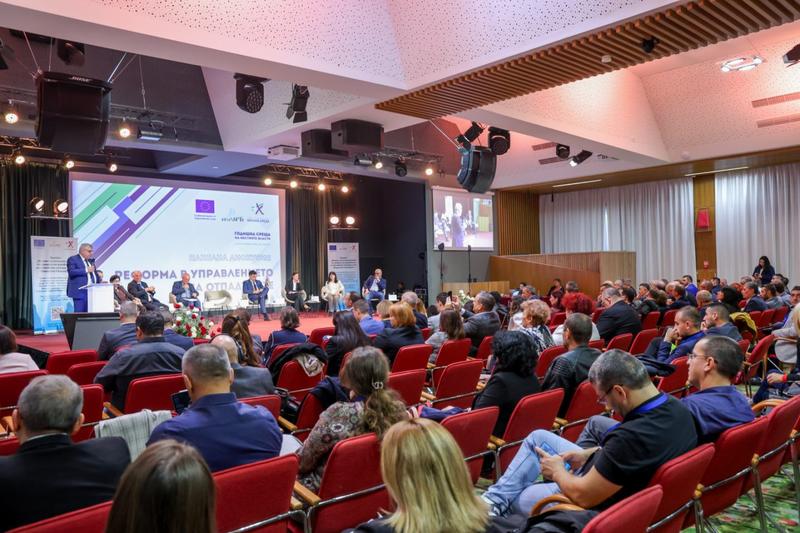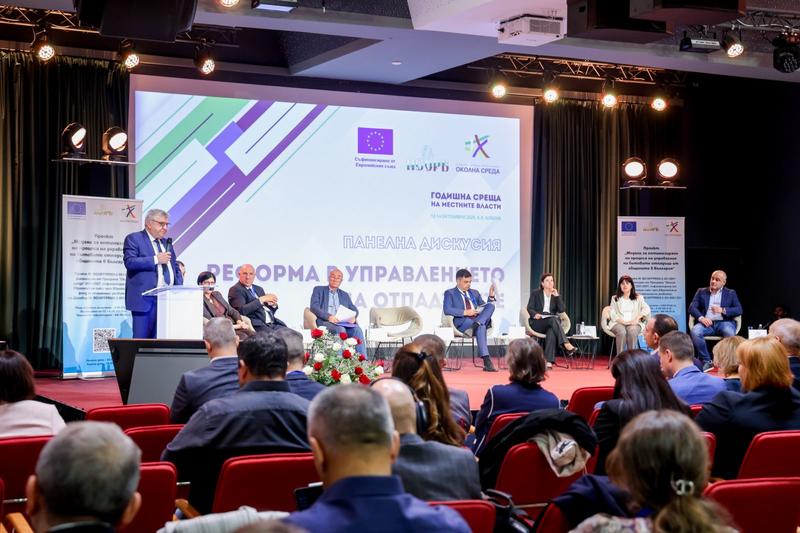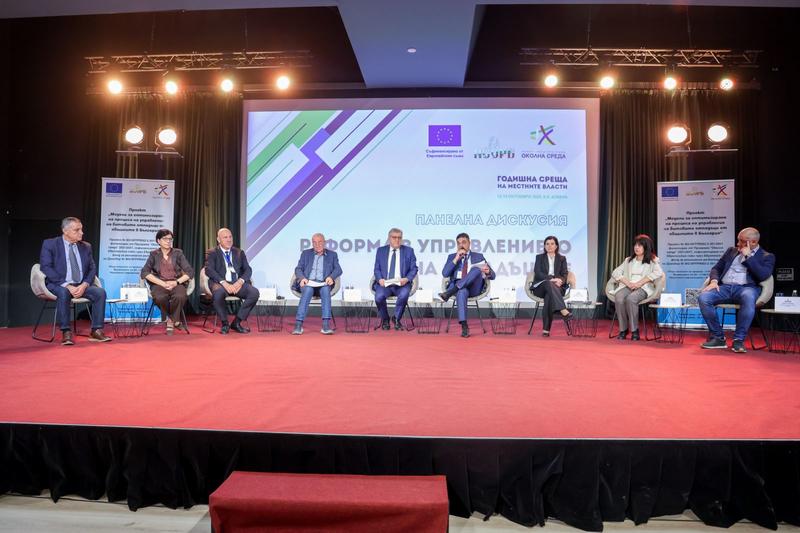Minister Manol Genov: We are working to introduce the deposit system for packaging from 2027
13 Oct, 2025 | 15:52The realistic deadline for introducing the national deposit system for packaging is 2027. This was announced by the Minister of Environment and Water Manol Genov during the panel discussion on the reform of municipal waste management. The topic was discussed in the Albena resort within the framework of the annual meeting of local authorities, organized by the National Association of Municipalities in the Republic of Bulgaria (NAMRB).
According to Minister Genov, in 2026, the Ministry of Environment and Water will hold consultations with municipalities, recovery organizations, industry associations, and entities involved in the process to discuss which types of waste management activities will be included in the deposit system. "We want municipalities to be actively involved in the system. The entire process from returning the deposit packaging to its recycling is an activity that must be paid for. This is the difficulty in managing the financial model of the entire system," explained the Minister.
"The goal is to collect the maximum number of packages - according to the data, the total in the country is about 40 -50 thousand tons, which is not a large amount. The only way to succeed in this goal is to reach every village, every neighborhood and small shop that wants to get involved. For small shops, there can be mobile vending machines for collecting packages," said Minister Manol Genov. He pointed out that the deposit system will also have a social dimension, so it must reach every shop, every consumer. If the system is aimed mainly at large retailers, small ones will lose their business, and the state must also take care of preserving jobs.
The Ministry of Environment and Water has already prepared changes to the Waste Management Act (WMA), which will soon be proposed for consideration. "For now, the government's ideas are for the deposit system to be managed by a state-owned joint-stock company," announced the Мinister. And he added that otherwise there is a risk that the money will not suffice due to the huge scope of activities and the aforementioned challenge to reach every consumer.
According to Manol Genov, the deposit system is not a “panacea”, but a “crutch” for all activities according to the “polluter pays” principle, so it is time to introduce real responsibility - the one who pollutes must also bear the costs of this. "Otherwise, we are threatened with a criminal procedure and financial sanctions for the state and municipalities. We must explain to the citizens who pay that this is the right way and it will save them money. Because a person who is not convinced that this is profitable for him cannot approach separate collection responsibly," warned the Minister.
In order to introduce the "polluter pays" principle, changes are needed in the Condominium Ownership Act, the Address Registration Act, as well as ensured access for municipalities to various databases so that experts in city halls can make the calculations. "If everything is directed towards the owner and the user's commitments originate from there, the municipality must calculate the fee in relation to: a specific address, a specific independent object in the multi-storey residential building, and it must know how many people live in it," explained Minister Manol Genov. According to him, the task is not easy for mayors and in order for them to cope, the National Municipal and Regional Administration of the Republic of Bulgaria can also propose the relevant changes in these laws so that the reform can be implemented.
Last but not least, Minister Genov said that the topic is also directly related to the problem of unregulated landfills - prevention is necessary so that municipalities do not spend money on cleaning them. He is convinced that the control by municipalities is underestimated, and the funds for their liquidation are a serious expense that can hardly be set in advance in the budgets with exact amounts. The Minister assured the representatives of the local authorities that the Ministry of Environment and Water will be their partner, because they are on the front line in environmental policy, for which the state has the task of providing the necessary regulatory, financial, and expert support.



